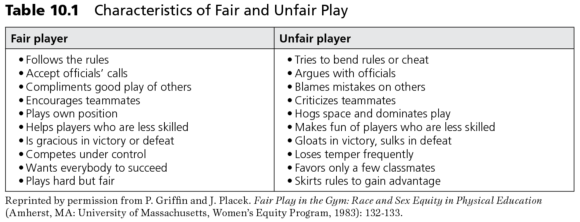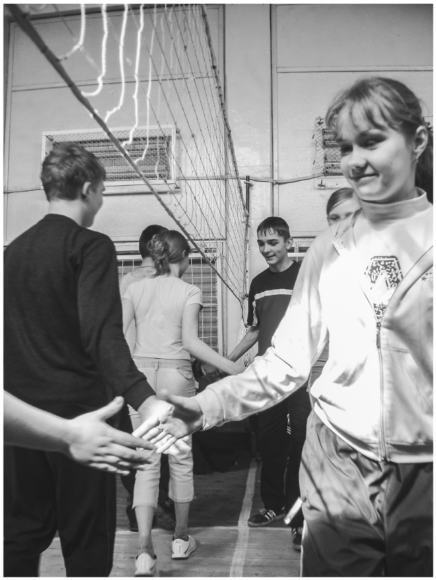Developing Positive Behavior Within a Culture of Fair Play
This is an excerpt from Complete Guide to Sport Education 3rd Edition With Web Resource by Daryl Siedentop,Peter Hastie,Hans Van Der Mars.
Physical education has emphasized social development and character development objectives for more than 100 years, and while it has long been argued that sport builds character, we know this does not happen automatically just by engaging students in sport programs. Fortunately, the Sport Education model provides the context within which these goals can be achieved. But for Sport Education to be a site of positive responsibility, inclusion, and equitable learning environments, we need to produce season plans and individual lessons that have a democratic, inclusive, and participatory focus. Further, within these lessons there must be opportunities where fair play behaviors are addressed, together with the social (i.e., responsibility, perseverance, loyalty, and teamwork) and moral (i.e., honesty and mutual respect) properties of the sporting experience (Harvey, Kirk, & O'Donovan, 2014).
At a structural level, the basic Sport Education format of longer seasons and team membership for the duration of the season provides the motivational context within which students can learn to be good leaders, good teammates, and good competitors. They learn exactly what fair play means in the context of specific sports and other physical activities. They learn about fair play when they fulfill their roles as referees, judges, or umpires. They learn to appreciate participating in a series of good games, played hard and fairly by both teams. Good games are those where they can gradually learn the value of perseverance, the satisfaction of improvement, and the fulfillment that comes from contributing to a team effort and having that contribution recognized. None of these outcomes accrues automatically; teachers and students have to work together to ensure that these outcomes prevail.
Our approach to positive responsibility is grounded in the concept of fair play. We chose this approach because fair play is recognized throughout the world as the central concept for social development in children's and youth sport. Fair play has a much broader meaning than just playing by the rules. It also means having respect for opponents, participating with the right spirit and attitude, valuing equal opportunity, and behaving responsibly as a teammate and as a player. Table 10.1 provides a list of the characteristics of fair and unfair play, while figure 10.2 gives examples of prestigious awards given by sports governing bodies. This chapter's web resource includes numerous supporting resources aimed specifically at developing students' fair play skills.

Strategies for Teaching Fair Play and Responsibility
Sport Education provides the context within which fair play and responsibility goals can be achieved. The affiliation of students with teams and the multiple roles students have to fulfill for a season to be successful create endless opportunities for teachers to emphasize these goals and for students to learn what it means to achieve the goals. Teams meet regularly to make decisions together, and they compete for a seasonal championship. Student referees are put in situations where they make judgments to which competitors react. These situations have the potential to create tensions, disagreements, and even confrontations, all of which become teachable moments for students not only to learn what constitutes fair play but also to come to value it.
Strategies for teaching fair play differ somewhat depending on the age and experience of the students. The overall strategy is to make fair play an important and pervasive part of all that is done throughout a Sport Education season. Farias (2017) has provided a number of useful pedagogical strategies teachers can use to promote inclusion, equity, and positive responsibility. These include (1) developing positive and responsible membership, (2) developing positive and responsible peer leadership, and (3) reshaping the meaning of winning for legitimating different levels of participation and membership.

Sport Education provides the context within which fair play and responsibility goals can be achieved.
More Excerpts From Complete Guide to Sport Education 3rd Edition With Web ResourceSHOP

Get the latest insights with regular newsletters, plus periodic product information and special insider offers.
JOIN NOW
Latest Posts
- How do I integrate nutrition education into PE?
- How does the support of friends and family influence physical activity?
- What makes the Physical Best approach unique?
- Strength training gimmicks . . . or not?
- How do vitamins and minerals support our bodies?
- Why do many people have difficulty losing weight?


